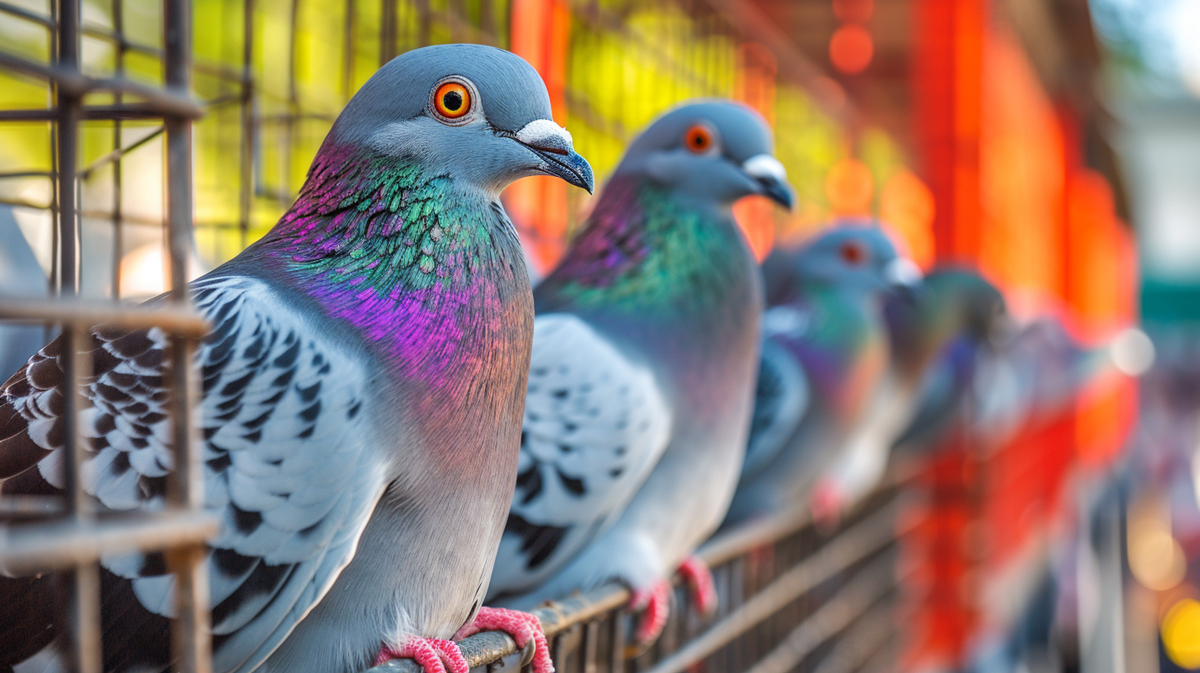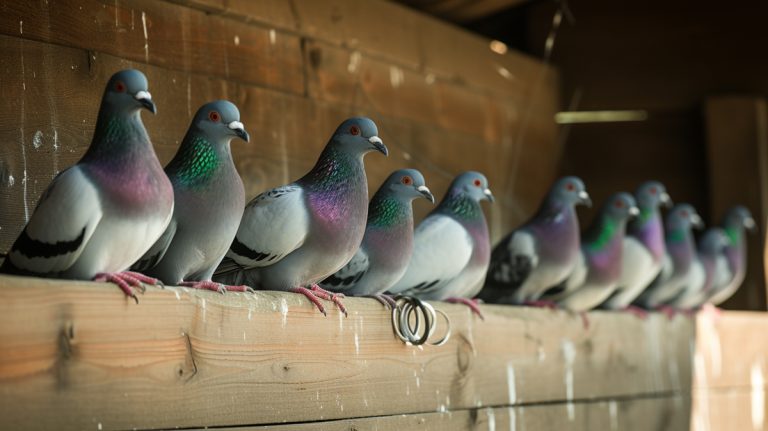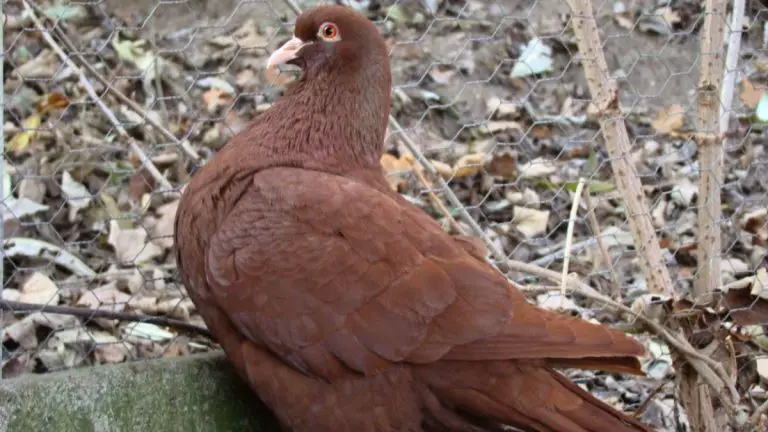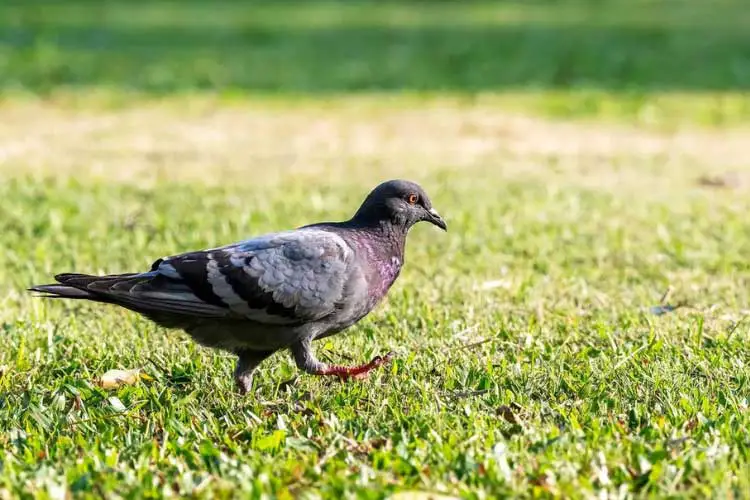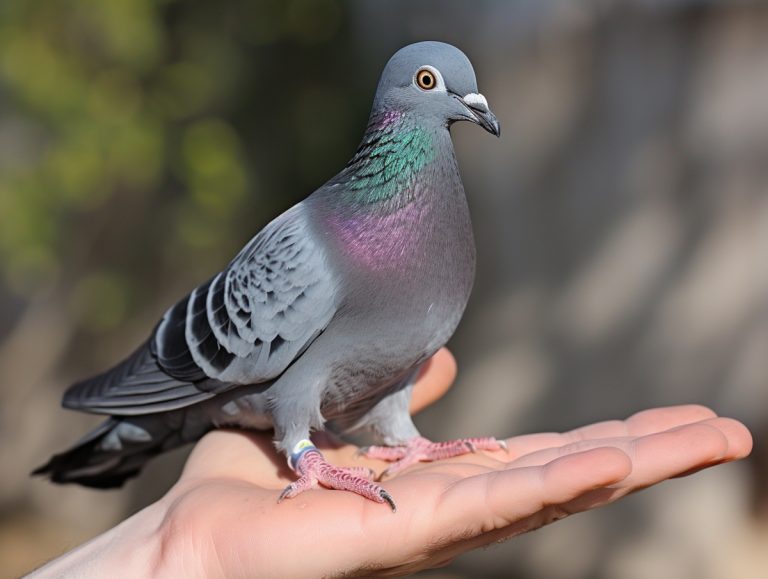Effective Weight Management in Pigeons: Tips & Resources
Weight management plays a crucial role in the overall health and well-being of pigeons. As a pigeon owner, it’s essential to understand the importance of maintaining a healthy weight for your birds. In this section, I’ll discuss the significance of weight management and how it can positively impact your pigeons’ lives.
Maintaining an optimal weight range is vital for pigeons to perform their natural behaviors, such as flying and foraging. When pigeons are overweight or underweight, it can affect their ability to fly, navigate, and even reproduce. By keeping their weight in check, we can ensure that pigeons can engage in their instinctual activities without any hindrances.
One of the primary benefits of weight management in pigeons is the prevention of obesity-related health issues. Just like in humans, obesity in pigeons can lead to various health problems, including heart disease, joint issues, and reproductive complications. By monitoring their diet and providing regular exercise, we can help prevent these issues and promote a long, healthy life for our feathered friends.
Proper weight management also has a direct impact on the immune system of pigeons. When pigeons are at an ideal weight, their immune system functions optimally, making them less susceptible to infections and diseases. On the other hand, overweight or underweight pigeons may have compromised immune systems, making them more vulnerable to illnesses. By maintaining a healthy weight, we can greatly enhance their overall immune response.
Weight management is also significant for racing pigeons. Pigeon racing is a popular and highly competitive sport, where every ounce can make a difference. Racers meticulously monitor their pigeons’ weight to ensure they are in top physical condition for races. Maintaining the ideal weight can improve racing performance, agility, and endurance.
Understanding the importance of weight management in pigeons is essential for their overall health and well-being. By maintaining a healthy weight, we can provide pigeons with the opportunity to engage in their natural behaviors, prevent obesity-related health issues, enhance their immune system, and improve racing performance. As responsible pigeon owners, it’s our duty to prioritize weight management and ensure a happy and healthy life for our beloved birds.
Factors Affecting Pigeon Weight
When it comes to weight management in pigeons, there are several factors that can impact their weight. Let’s explore some of these factors and how they can affect the overall health and well-being of pigeons.
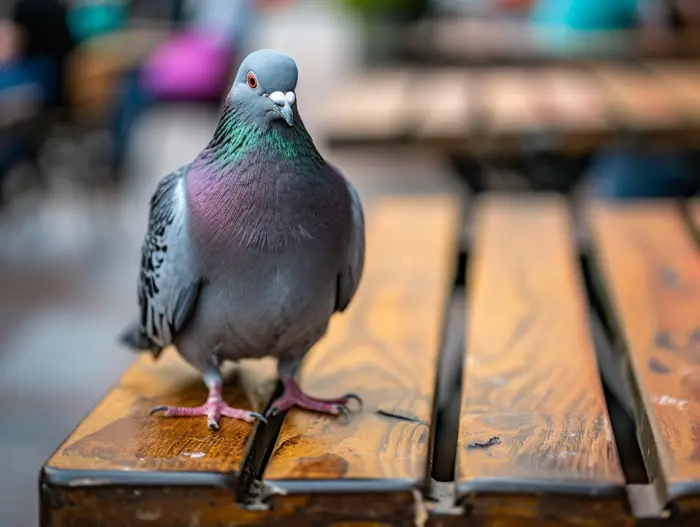
Diet:
The type and quantity of food pigeons consume can greatly impact their weight. A balanced diet is crucial to maintaining optimal weight in pigeons. A diet that is high in quality and appropriate for their nutritional needs is essential. Offering a variety of grains, seeds, and pellets can help ensure that pigeons receive all the necessary nutrients while maintaining a healthy weight.
Exercise:
Regular exercise is another key factor in pigeon weight management. Flying is a natural behavior for pigeons, and this activity helps burn calories and maintain a healthy weight. Providing ample space for pigeons to stretch their wings and encouraging daily flight can contribute to their overall fitness and weight control.
Environmental conditions:
The weather and environmental conditions can also impact pigeon weight. During hot summer months, pigeons may lose weight due to increased water consumption and decreased appetite. On the other hand, during colder months, pigeons may require additional energy to maintain their body temperature, which can lead to weight gain if not properly managed.
Reproductive cycle:
The reproductive cycle of pigeons can also affect their weight. Female pigeons may gain weight during the breeding season when they are producing eggs and feeding their young. It’s important to monitor their weight and adjust their diet accordingly to prevent excessive weight gain or loss.
Health issues:
Certain health conditions can affect weight in pigeons. Parasites, infections, and underlying diseases can lead to weight loss or weight gain. Regular health check-ups and proper veterinary care are essential to detect and manage any health issues that may impact pigeon weight.
Understanding these factors is crucial in maintaining proper weight management in pigeons. By monitoring their diet, encouraging exercise, and addressing any underlying health issues, we can ensure the overall health and well-being of these remarkable birds.
- Pigeons can fly at an average speed of 50 to 60 miles per hour.
- A healthy racing pigeon can cover distances of 500 miles in a single race.
- The average weight of a pigeon is around 9.5 to 13.4 ounces, but this can vary depending on the breed.
Determining the Ideal Weight for Pigeons
As an expert in pigeon care, I know that determining the ideal weight for pigeons is essential for their overall health and well-being. It allows us to ensure that they are neither underweight nor overweight, as both extremes can lead to various health issues. So, how do we determine the ideal weight for pigeons? Let’s dive deeper into this topic.

Factors Affecting Pigeon Weight
Before we can establish the ideal weight for pigeons, we need to understand the factors that can influence their weight. These factors include:
- Diet: A balanced diet plays a crucial role in maintaining a pigeon’s weight. It should consist of a combination of grains, seeds, vegetables, and fruits. Avoiding high-fat and sugary foods is important to prevent weight gain.
- Exercise: Just like humans, pigeons need regular exercise to stay fit. Flying freely in a safe and spacious environment allows them to burn calories and maintain their weight.
- Environmental Conditions: Extreme weather conditions can impact a pigeon’s weight. Cold temperatures may cause them to eat more and gain weight, while hot temperatures can reduce their appetite, leading to weight loss.
- Reproductive Cycle: Breeding pigeons may experience weight fluctuations during the reproductive cycle. Females may gain weight during egg laying, while males may lose weight due to increased activity.
- Health Issues: Pigeons with underlying health problems may have abnormal weight fluctuations. It’s important to monitor their weight closely and consult a veterinarian if any concerns arise.
Determining the Ideal Weight
Now that we understand the factors influencing pigeon weight, let’s talk about determining the ideal weight for them. Keep in mind that the ideal weight can vary depending on the breed and individual pigeon. To assess their weight, you can:
- Observe Body Condition: Look for visible signs of the pigeon’s body condition, such as the prominence of their breastbone and the amount of fat around it. A healthy pigeon should have a moderate amount of fat.
- Weigh the Pigeon: Use a digital scale to weigh your pigeon. Regularly monitoring their weight will help you identify any significant changes and take appropriate action if necessary.
The Impact of Overweight and Underweight Pigeons
Weight management plays a crucial role in the overall well-being of pigeons. As with humans, being either overweight or underweight can have negative consequences for these birds. Let’s take a look at the impact of both overweight and underweight conditions on pigeons.
Overweight Pigeons:
When pigeons are overweight, it can put strain on their bodies and lead to various health issues. Here are some consequences of obesity in pigeons:
- Reduced mobility: Excess weight can make it difficult for pigeons to fly freely and move around comfortably.
- Cardiovascular problems: Overweight pigeons are at a higher risk of heart disease and other cardiovascular complications.
- Respiratory difficulties: Extra weight can put pressure on their respiratory system, leading to breathing problems.
- Feather and skin issues: Pigeons may struggle to maintain proper feather and skin health due to limited mobility and discomfort caused by excess weight.
- Reduced lifespan: Obesity can shorten a pigeon’s lifespan significantly.
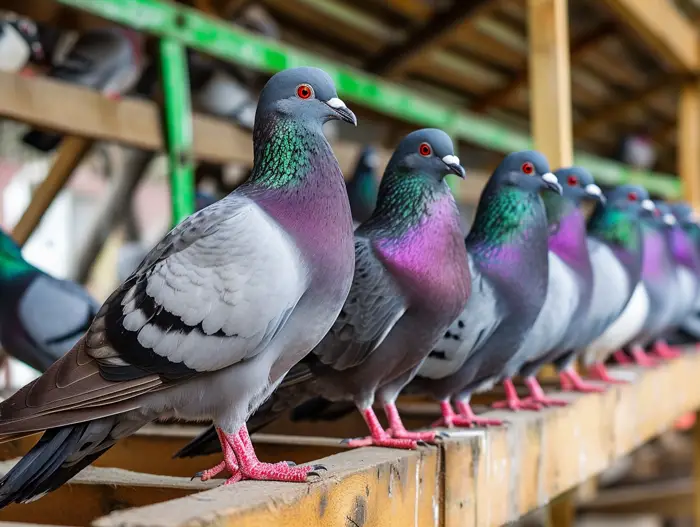
Underweight Pigeons:
On the other hand, being underweight can also have detrimental effects on pigeons. Here are some consequences of being underweight:
- Decreased energy: Underweight pigeons may lack the energy to engage in normal activities and exhibit signs of fatigue.
- Weakened immune system: Insufficient weight can compromise a pigeon’s immune system, making them more susceptible to infections and diseases.
- Poor reproductive health: Underweight pigeons may have difficulty reproducing and suffer from infertility issues.
- Reduced muscle mass: Lack of proper weight can result in decreased muscle strength and limited mobility.
Maintaining a healthy weight is crucial for the overall health and well-being of pigeons. By providing a balanced diet, regular exercise, and monitoring their weight, we can ensure that these birds stay in optimal condition.
Remember, if you notice any significant weight changes or concerns about your pigeons’ weight, it’s important to consult a veterinarian for further guidance.
Weight management plays a crucial role in the overall well-being of pigeons. Both overweight and underweight conditions can have severe consequences for these birds. By understanding the impact of weight on pigeons, we can provide them with the necessary care and support to maintain a healthy weight and thrive.
Methods for Weight Management in Pigeons
When it comes to weight management in pigeons, there are a few key methods that can help ensure their overall well-being. It’s important to remember that maintaining a healthy weight in pigeons requires a balanced approach involving diet, exercise, and regular monitoring. Here are some effective methods for managing weight in pigeons:
1. Balanced Diet
A balanced diet is crucial for maintaining a healthy weight in pigeons. It’s important to provide them with a nutritious mix of grains, seeds, fruits, and vegetables. Avoid feeding them excessive amounts of high-fat or high-sugar foods as these can contribute to weight gain. Instead, focus on providing a variety of foods that meet their nutritional needs.
2. Portion Control
Controlling the portions of food you give to your pigeons is essential in preventing overeating and weight gain. Be mindful of the amount of food you provide, and avoid leaving food out all day. Pigeons should have access to food for a limited time to prevent constant snacking and potential overeating.
3. Regular Exercise
Just like humans, pigeons benefit from regular exercise. Encourage your pigeons to engage in activities that promote movement and physical activity. This can include providing them with ample space to fly and roam, as well as introducing toys or perches that encourage active play.
4. Monitor Weight
Regularly monitoring the weight of your pigeons is crucial in maintaining their health. Use a small scale designed for weighing birds to track their weight. Keep a record of their weight on a regular basis and consult a veterinarian if you notice any sudden or significant changes.
5. Consult a Veterinarian
If you have any concerns about your pigeon’s weight or overall well-being, it’s always best to consult a veterinarian. They can provide guidance, conduct a thorough examination, and offer tailored advice specific to your pigeon’s needs.
By following these methods for weight management in pigeons, you can help ensure their overall well-being and promote a healthy lifestyle. Remember to provide a balanced diet, control portions, encourage regular exercise, monitor weight, and seek professional advice when needed.
Proper Nutrition and Diet for Maintaining the Optimal Weight
When it comes to weight management in pigeons, one of the key factors to consider is their nutrition and diet. Providing your pigeons with a balanced diet is essential for maintaining their optimal weight and overall health. Here are some important considerations to keep in mind:
Diverse Diet: It’s crucial to offer a diverse diet to your pigeons. This means providing a mix of grains, seeds, fruits, and vegetables. Each of these food groups offers different essential nutrients that are important for their well-being. Remember to vary the types of food you offer to ensure they receive a wide range of nutrients.
Portion Control: Just like with humans, portion control plays a significant role in managing weight in pigeons. It’s important to measure out the appropriate amount of food for your pigeons based on their size, activity level, and individual needs. This helps prevent overeating and ensures they consume only what they need.
Hydration: Adequate hydration is essential for maintaining a healthy weight and overall well-being in pigeons. Ensure clean, fresh water is readily available for your pigeons at all times. Monitor their water intake to ensure they stay hydrated.
Supplementation: While a balanced diet should provide pigeons with most of the necessary nutrients, sometimes supplementation may be required, especially if there are deficiencies or specific health concerns. Consult with a veterinarian to determine if any additional supplements are necessary for your pigeons.
Regular Feeding Schedule: Establishing a regular feeding schedule is important for weight management. Consistency in feeding times helps regulate the pigeons’ metabolism and prevents erratic eating patterns. Stick to a routine that works for you and your pigeons.
By paying attention to their nutrition and diet, you can ensure that your pigeons maintain a healthy weight and overall well-being. Remember to offer a diverse diet, practice portion control, provide adequate hydration, consider supplementation if needed, and establish a regular feeding schedule. These steps, along with regular exercise and weight monitoring, will support the healthy lifestyle of your pigeons.
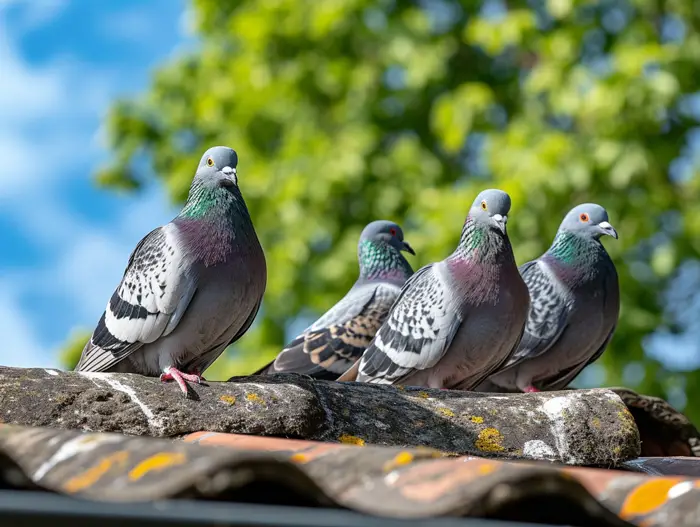
Important Nutritional Tips for Pigeon Weight Management
- Offer a diverse diet including grains, seeds, fruits, and vegetables.
- Practice portion control to prevent overeating.
- Ensure clean, fresh water is readily available at all times.
- Consider supplements if there are deficiencies or health concerns.
- Establish a regular feeding schedule to regulate their metabolism.
Exercise and Physical Activity for Pigeons
As we discussed earlier, a balanced diet is essential for maintaining the optimal weight of pigeons. However, diet alone is not enough. Just like humans, pigeons also need regular exercise and physical activity to stay healthy and manage their weight effectively. In this section, I will share some important information about exercise and physical activity for pigeons.
The Importance of Exercise for Pigeons
Regular exercise offers numerous benefits for pigeons, including:
- Weight management: Exercise helps burn calories and promote weight loss in pigeons, preventing them from becoming overweight or obese.
- Cardiovascular health: Physical activity keeps the heart and blood vessels healthy, reducing the risk of heart diseases.
- Muscle strength: Exercise helps develop strong muscles, enabling pigeons to fly and move with ease.
- Stress relief: Just like humans, pigeons can also experience stress. Regular exercise helps reduce stress levels and promote mental well-being.
Types of Exercise for Pigeons
Pigeons are natural flyers, so flying is the most beneficial and natural form of exercise for them. However, if your pigeons are kept in an aviary or loft, you can provide them with opportunities for exercise in other ways. Here are a few suggestions:
- Free flight: If you have a safe and secure area, allow your pigeons to fly freely outside. This gives them the chance to spread their wings and engage in natural flying behavior.
- Flight tunnels: Build flight tunnels in the pigeon house or loft. These tunnels simulate flying conditions and encourage pigeons to exercise.
- Obstacle course: Create an obstacle course inside the pigeon house or loft. This allows your pigeons to navigate through various objects and obstacles, promoting physical activity.
- Toys and perches: Provide your pigeons with toys and perches that encourage movement and play. These can include hanging toys, swings, and climbing structures.
- Schedule regular flying sessions: Set aside specific times each day for your pigeons to fly or exercise. Consistency is key to ensuring they get enough physical activity.
- Monitor their activity: Observe your pigeons during exercise sessions to ensure they are active and engaged. If they seem lethargic or uninterested, try changing the type of exercise
Monitoring and Regular Weighing of Pigeons
One crucial aspect of weight management in pigeons is monitoring and regular weighing. By keeping a close eye on their weight, I can ensure that my pigeons are maintaining a healthy body condition. Here are some important points to consider when monitoring and weighing pigeons:

Regular Weighing: I make it a habit to weigh my pigeons on a regular basis. This helps me to track any fluctuations in their weight and identify any potential issues early on. I recommend using a reliable and accurate weighing scale specifically designed for birds. It’s essential to weigh them consistently at the same time of day, preferably in the morning before their feeding.
Recording Weight: I maintain a record of each pigeon’s weight in a notebook or spreadsheet. This allows me to track their weight over time and spot any patterns or changes that may require attention. By having this data readily available, I can take necessary actions if I notice any significant deviations from their normal weight range.
Establishing a Baseline: It’s essential to establish a baseline weight for each pigeon when they are healthy and in good condition. This baseline weight will serve as a reference point for future weighings, helping me to determine if there are any signs of weight gain or loss.
Consulting a Veterinarian: If I notice any sudden or significant changes in a pigeon’s weight, or if I have concerns about their overall health, I always consult with a veterinarian experienced in avian medicine. They can provide expert guidance and help identify any underlying issues that may be affecting their weight.
Adjusting Diet and Exercise: Regular monitoring and weighing allow me to make informed decisions about my pigeons’ diet and exercise routine. If I notice weight gain, I can adjust their diet to include more low-calorie foods or reduce their portion sizes. Conversely, if I notice weight loss, I can ensure they are receiving enough high-quality food and adjust their exercise regimen accordingly.
By regularly monitoring and weighing my pigeons, I can proactively manage their weight and ensure their overall well-being. This helps me to maintain healthy birds and catch any potential health issues early on. So, make it a habit to keep an eye on your pigeons’ weight and address any concerns promptly.
Seeking Professional Guidance for Effective Weight Management
When it comes to managing the weight of our beloved pigeons, sometimes it’s best to seek professional guidance. Consulting a veterinarian who specializes in avian health can provide valuable insights and personalized recommendations for achieving effective weight management.
Why consult a veterinarian?
Veterinarians have the expertise and knowledge to determine the ideal weight range for pigeons based on their breed, age, and overall health. They can guide us in setting realistic weight loss or maintenance goals, ensuring that our feathered friends are in optimal condition.
Benefits of professional guidance
Here are a few benefits of seeking professional guidance for weight management in pigeons:
- Accurate assessment: Veterinarians will conduct a thorough physical examination, including weighing the pigeon, to assess their current weight and body condition. This helps establish a baseline for tracking progress and making necessary adjustments to their diet and exercise routine.
- Tailored advice: Every pigeon is unique, and their weight management needs may vary. A veterinarian can provide personalized advice and recommendations based on the individual needs of the pigeon, taking into account factors such as their activity level, metabolism, and any underlying health issues.
- Professional resources: Veterinarians have access to a wide range of resources, such as specialized diets and supplements, that can aid in achieving and maintaining a healthy weight. They can also provide guidance on proper portion sizes and feeding schedules to support the overall well-being of the pigeon.
- Monitoring and follow-up: Regular check-ups with a veterinarian allow for ongoing monitoring of the pigeon’s weight and progress. If any significant changes in weight occur, a veterinarian can help identify the underlying cause and adjust the weight management plan accordingly.
Remember, seeking professional guidance should not replace our own efforts in providing a balanced diet, regular exercise, and monitoring our pigeons’ weight. Instead, it serves as an added layer of support and expertise to ensure that we are giving our feathered friends the best possible care.
So, don’t hesitate to reach out to a veterinarian who specializes in avian health to seek their professional guidance for effective weight management in pigeons. They are valuable partners in our journey towards maintaining the optimal weight and well-being of our beloved pigeons.
Conclusion
Managing weight in pigeons is essential for their overall well-being. By following the methods outlined in this article, such as providing a balanced diet, practicing portion control, encouraging regular exercise, and monitoring weight, pigeon owners can ensure their birds maintain a healthy lifestyle.
Proper nutrition is crucial for maintaining optimal weight in pigeons. Offering a diverse diet, controlling portion sizes, ensuring hydration, and considering supplementation when necessary are all important factors to consider. Establishing a regular feeding schedule also helps in weight management.
Exercise plays a vital role in keeping pigeons healthy. Free flight, flight tunnels, obstacle courses, and providing toys and perches are all effective ways to encourage physical activity. Regular flying sessions and monitoring activity levels during exercise are also important to ensure pigeons are active and engaged.
Regular monitoring and weighing of pigeons is crucial to maintaining their healthy body condition. Using a reliable weighing scale, recording weight, and consulting a veterinarian for significant weight changes are recommended. Adjusting diet and exercise based on weight fluctuations is also important.
For accurate assessment and tailored advice, seeking professional guidance from a veterinarian who specializes in avian health is highly recommended. They can provide access to professional resources, ongoing monitoring, and follow-up to ensure effective weight management for pigeons.
By following these guidelines, pigeon owners can ensure their birds lead healthy and fulfilling lives.
